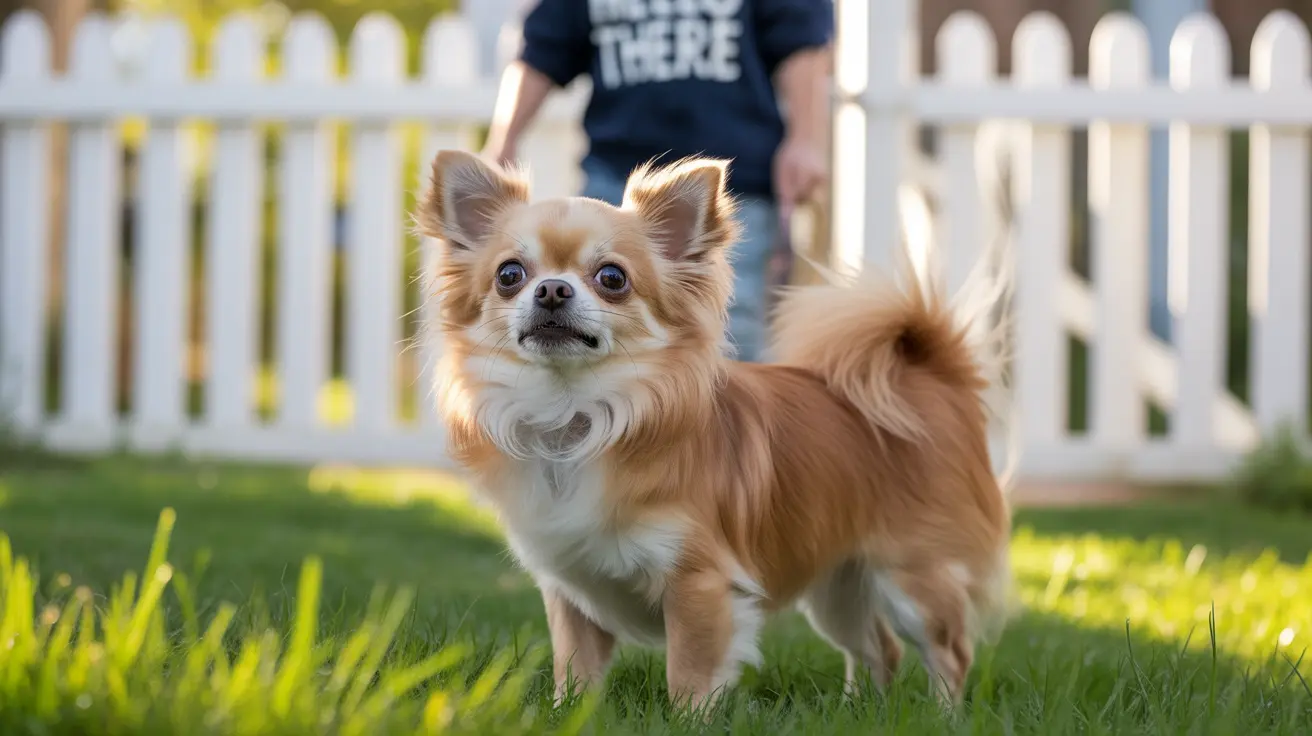If you've ever wondered why Chihuahuas bark so much, you're not alone. These tiny but mighty dogs are known for their vocal nature, often earning a reputation as one of the most talkative dog breeds. Let's dive deep into the reasons behind their frequent barking and explore effective ways to manage this behavior.
As a breed with a rich history as watchdogs, Chihuahuas have inherited strong protective instincts that often manifest through their barking. Their small size combined with their bold personality creates a unique dynamic where they feel compelled to alert their owners to any potential threats – real or perceived.
Natural Instincts and Genetic Factors
Chihuahuas' tendency to bark frequently stems from their genetic predisposition as alert watchdogs. These small dogs were historically bred to be vigilant protectors, and this trait remains deeply embedded in their DNA. Their sharp hearing and keen awareness of their surroundings make them naturally inclined to vocalize at the slightest disturbance.
Additionally, their territorial nature plays a significant role in their barking behavior. Chihuahuas form strong bonds with their owners and view their home as territory that needs protecting, leading them to bark at unfamiliar people, animals, or sounds.
Common Triggers for Excessive Barking
Environmental Stimuli
Many everyday situations can trigger barking in Chihuahuas, including:
- Unfamiliar sounds or movements
- Strangers approaching the house
- Other animals in view
- Changes in their environment
- Sudden loud noises
Emotional Factors
Chihuahuas often bark in response to their emotional state, including:
- Anxiety or stress
- Excitement during play
- Attention-seeking behavior
- Separation anxiety
- Boredom or frustration
Managing Your Chihuahua's Barking
While you can't completely stop a Chihuahua from barking – nor should you want to, as it's a natural form of communication – there are several effective strategies to manage excessive barking:
Physical Exercise and Mental Stimulation
Regular exercise is crucial for reducing unnecessary barking. A tired Chihuahua is typically a quieter Chihuahua. Provide daily walks, play sessions, and mental enrichment through puzzle toys and training games to help burn off excess energy that might otherwise be channeled into barking.
Proper Training and Socialization
Early socialization and consistent training are key to developing a well-balanced Chihuahua. Use positive reinforcement techniques to teach your dog when it's appropriate to bark and when to be quiet. Remember that consistency is crucial – all family members should follow the same training approach.
Creating a Calm Environment
Establish a peaceful living space that minimizes triggers for your Chihuahua. This might include:
- Using white noise machines to mask outside sounds
- Creating a designated quiet space or den
- Maintaining consistent daily routines
- Managing exposure to exciting situations
- Providing comfort items during stressful times
Frequently Asked Questions
Why do Chihuahuas bark so much and what causes their frequent barking?
Chihuahuas bark frequently due to their genetic predisposition as watchdogs, their protective nature, and their high energy levels. Their barking is often triggered by their strong territorial instincts and desire to alert their owners to potential threats.
How can I stop my Chihuahua from barking excessively at strangers or noises?
Implement consistent training using positive reinforcement, ensure proper socialization, and gradually desensitize your Chihuahua to common triggers. Teaching commands like "quiet" and rewarding calm behavior can help manage excessive barking.
What role does exercise and mental stimulation play in reducing Chihuahua barking?
Regular exercise and mental stimulation are crucial in reducing excessive barking as they help burn off excess energy and prevent boredom-related vocalization. Daily walks, play sessions, and puzzle toys can significantly decrease unnecessary barking.
How does anxiety or separation affect a Chihuahua's barking behavior?
Anxiety, particularly separation anxiety, can lead to excessive barking in Chihuahuas. They may bark when left alone or in stressful situations as a way to cope with their anxiety or attempt to reunite with their owners.
What training methods work best to teach a Chihuahua to bark less?
Positive reinforcement training, including rewarding quiet behavior and teaching the "quiet" command, works best. Consistency, patience, and avoiding punishment-based methods are key to successfully reducing excessive barking.






